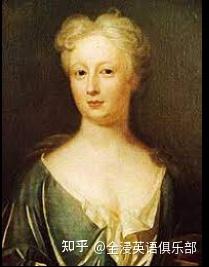请问塞缪尔·约翰逊(Samuel Johnson)有什么值得阅读的书籍?
3 个回答
爱国主义:流氓无赖的避风港?
塞缪尔·约翰逊的观点解析
为什么塞缪尔·约翰逊说:“爱国主义是流氓无赖们最后的藏身之地”?
在爱国主义的崇高旗帜下,一些不良分子可能会隐藏其狭隘、极端、甚至暴力的行为。约翰逊的这一洞见提醒我们,要警惕爱国主义被滥用,成为排他、仇恨或不公正的庇护所。在现代社会,我们更应倡导一个理性、包容、和平且基于法治的爱国主义。
| 爱国主义的表面 | 爱国主义的暗面 | 约翰逊的洞察 | 现代意义 |
|---|---|---|---|
| 民族自豪感 | 极端民族主义 | 警惕狭隘情绪 | 全球化时代的挑战 |
| 保卫家园 | 暴力与侵略 | 批判滥用武力 | 和平与安全的追求 |
| 传承文化 | 文化沙文主义 | 倡导文化多元 | 文化交流与融合 |
| 团结一心 | 排外与仇恨 | 强调包容合作 | 社会和谐与进步 |
| 尊重法律 | 法律的双标 | 呼唤公平正义 | 法治社会的基石 |
| 献身公益 | 利用爱国谋利 | 揭露利益链条 | 公益事业的纯净 |
| 历史记忆 | 历史虚无主义 | 捍卫历史真相 | 历史意识的培育 |
| 道德高地 | 道德绑架 | 倡导理性爱国 | 道德自由的维护 |
这个表格揭示了塞缪尔·约翰逊所说的“爱国主义是流氓无赖们最后的藏身之地”这一观点的多层次含义。
在爱国主义的崇高旗帜下,一些不良分子可能会隐藏其狭隘、极端、甚至暴力的行为。约翰逊的这一洞见提醒我们,要警惕爱国主义被滥用,成为排他、仇恨或不公正的庇护所。在现代社会,我们更应倡导一个理性、包容、和平且基于法治的爱国主义。
相互关系总结:
从上述表格中我们可以看到,爱国主义的正面表现如民族自豪感、保卫家园等,与暗面如极端民族主义、暴力侵略等形成鲜明对比。约翰逊的洞察提醒我们要识别并批判那些利用爱国主义作为幌子的不良行为。在现代意义上,我们应该致力于构建一个更加多元、包容和和平的社会,其中爱国主义不再是流氓无赖的避风港,而是推动社会进步和和谐的积极力量。

参考文献:
- Johnson, Samuel. "Patriotism is the last refuge of a scoundrel." Quoted in The Lives of the Most Eminent English Poets (1779-81).
- 中文翻译参考:塞缪尔·约翰逊. “爱国主义是流氓无赖们最后的藏身之地。”引自《英国最杰出诗人传》(1779-1781)。
【全浸经典】Samuel Johnson
全浸阅读=Total Immerse Dynamic eReading=TIDE
内容导读
➤1.-作者简介The Writers-Samuel Johnson

Samuel Johnson, byname Dr. Johnson, (born September 18, 1709, Lichfield, Staffordshire, England—died December 13, 1784, London), English critic, biographer, essayist, poet, and lexicographer, regarded as one of the greatest figures of 18th-century life and letters.
In 1735 Johnson married Elizabeth Porter, a widow 20 years his senior. Convinced that his parents’ marital unhappiness was caused by his mother’s want of learning, he would not follow their example, choosing instead a woman whom he found both attractive and intelligent.

Major Works:
1. Dictionary-A Dictionary of the English Language
2. Poetry
-London
-The Vanity of Human Wishes
3. Criticism-The Plays of William Shakespeare
4. Novella-The History of Rasselas, Prince of Abissinia
5. more
更多生平事迹
https://www.neh.gov/humanities/2009/septemberoctober/feature/what-samuel-johnson-really-did
➤2.-作品成因The origins of the work
THE PRINCE OF ABISSINIA: A TALE
The original working title of this novella was ‘The Choice of Life’, which according to legend Johnson wrote in only one week to help pay the costs of his mother’s funeral. The book was first published in April 1759 and it is believed the author received a total of £75 for the copyright. The title page of this edition carried a quotation, inserted by the publisher Robert Bell, from La Rochefoucauld: “The labour or Exercise of the Body, freeth Man from the Pains of the Mind; and this constitutes the Happiness of the Poor”.
In composing the narrative, Johnson was influenced by the vogue for exotic locations. Previously, he had translated A Voyage to Abyssinia by Jeronimo Lobo and used it as the basis for what was described as a “philosophical romance”. Early readers considered the novella to be a work of philosophical and practical importance and critics often remarked on the difficulty of classifying it as a piece of simple narrative fiction. Johnson was a staunch opponent of slavery and greatly revered by abolitionists, and in time Rasselas would become a name adopted by emancipated slaves.
The story is thematically similar to Candide by Voltaire which was published earlier the same year, as both novellas concern young men travelling in the company of honoured teachers, encountering and examining human suffering in an attempt to determine the root of happiness. Nevertheless, their root concerns are distinctly different. Voltaire was directly satirising the widely-read philosophical work by Gottfried Leibniz, particularly the Theodicee, in which Leibniz asserts that the world, no matter how we may perceive it, is necessarily the “best of all possible worlds”. In contrast the question Rasselas confronts most directly is whether or not humanity is essentially capable of attaining happiness. Writing as a devout Christian, Johnson makes no targeted attack on religion, as Voltaire does, and while the story is in places light and humorous, it is not a piece of satire, as indeed Candide certainly is.
In Johnson’s narrative, Rasselas, son of the King of Abyssinia, modern-day Ethiopia, is forced to remain in a beautiful valley until the order of succession should make him King. He grows weary of the factitious entertainments of the place and after much brooding, he escapes with his sister Nekayah, her attendant Pekuah and his poet-friend Imlac. They set off to see the world and search for happiness, but after a sojourn in Egypt, where they encounter various classes of society and undergo various adventures, they perceive the futility of their search and abruptly return to Abyssinia.
➤3.-His Biography

Constitutional chicane
➤4.-选段The Digest
CHAPTER I
DESCRIPTION OF A PALACE IN A VALLEY
Ye who listen with credulity to the whispers of fancy, and pursue with eagerness the phantoms of hope, who expect that age will perform the promises of youth, and that the deficiencies of the present day will be supplied by the morrow, attend to the history of Rasselas, Prince of Abyssinia.
Rasselas was the fourth son of the mighty emperor, in whose dominions the Father of Waters begins his course; whose bounty pours down the streams of plenty, and scatters over half the world the harvests of Egypt.
According to the custom which has descended from age to age among the monarchs of the torrid zone, Rasselas was confined in a private palace, with the other sons and daughters of Abyssinian royalty, till the order of succession should call him to the throne.
The place which the wisdom or policy of antiquity had destined for the residence of the Abyssinian princes, was a spacious valley in the kingdom of Amhara, surrounded on every side by mountains, of which the summits overhang the middle part. The only passage by which it could be entered, was a cavern that passed under a rock, of which it has long been disputed whether it was the work of nature or of human industry. The outlet of the cavern was concealed by a thick wood, and the mouth which opened into the valley was closed with gates of iron, forged by the artificers of ancient days, so massy that no man could without the help of engines open or shut them.
From the mountains on every side, rivulets descended, that filled all the valley with verdure and fertility, and formed a lake in the middle, inhabited by fish of every species, and frequented by every fowl whom nature has taught to dip the wing in water. This lake discharged its superfluities by a stream, which entered a dark cleft of the mountain on the northern side, and fell with dreadful noise from precipice to precipice till it was heard no more.
The sides of the mountains were covered with trees; the banks of the brooks were diversified with flowers; every blast shook spices from the rocks, and every month dropped fruits upon the ground. All animals that bite the grass, or browse the shrub, whether wild or tame, wandered in this extensive circuit, secured from beasts of prey by the mountains which confined them. On one part were flocks and herds feeding in the pastures, on another all the beasts of chase frisking in the lawns; the sprightly kid was bounding on the rocks, the subtle monkey frolicking in the trees, and the solemn elephant reposing in the shade. All the diversities of the world were brought together; the blessings of nature were collected, and its evils extracted and excluded.
The valley, wide and fruitful, supplied its inhabitants with the necessaries of life, and all delights and superfluities were added at the annual visit which the emperor paid his children, when the iron gate was opened to the sound of music, and, during eight days, every one that resided in the valley was required to propose whatever might contribute to make seclusion pleasant, to fill up the vacancies of attention, and lessen the tediousness of time. Every desire was immediately granted. All the artificers of pleasure were called to gladden the festivity; the musicians exerted the power of harmony, and the dancers showed their activity before the princes, in hope that they should pass their lives in this blissful captivity, to which those only were admitted whose performance was thought able to add novelty to luxury. Such was the appearance of security and delight which this retirement afforded, that they to whom it was new always desired that it might be perpetual; and as those on whom the iron gate had once closed were never suffered to return, the effect of longer experience could not be known. Thus every year produced new schemes of delight, and new competitors for imprisonment.
The palace stood on an eminence, raised about thirty paces above the surface of the lake. It was divided into many squares or courts, built with greater or less magnificence, according to the rank of those for whom they were designed. The roofs were turned into arches of massy stone, joined by a cement that grew harder by time; and the building stood from century to century, deriding the solstitial rains and equinoctial hurricanes, without need of reparation.
This house, which was so large as to be fully known to none but some ancient officers who successively inherited the secrets of the place, was built as if suspicion herself had dictated the plan. To every room there was an open and secret passage; every square had a communication with the rest, either from the upper stories by private galleries, or by subterranean passages from the lower apartments. Many of the columns had unsuspected cavities, in which a long race of monarchs had reposited their treasures. They then closed up the opening with marble, which was never to be removed but in the utmost exigencies of the kingdom; and recorded their accumulations in a book, which was itself concealed in a tower, not entered but by the emperor, attended by the prince who stood next in succession.
机翻中文仅供参考
轻信幻想的低语,热切追寻希望的幻影,期待岁月兑现青春的诺言,明日补足今日之不足的你们,关注历史拉塞拉斯,阿比西尼亚王子。拉塞拉斯是强大皇帝的第四个儿子,沃特斯之父在他的领土上开始了他的旅程;他的恩惠倾泻在丰饶的溪流中,把埃及的收成分散到世界的一半以上。根据炎热地区的君主代代相传的习俗,拉塞拉斯被关在一个私人宫殿里,而另一个阿比西尼亚王室的儿女,直到继承顺序将他称为王位。古代的智慧或政策注定要成为阿比西尼亚王子居住的地方,是阿姆哈拉王国的一个宽阔的山谷,四周环绕着四面环山,峰顶悬于中部。唯一可以进入的通道是一个从岩石下穿过的洞穴,长期以来人们一直在争论它是大自然的产物还是人类工业的产物。洞穴的出口被厚厚的木头遮住了,通向山谷的口被古代工匠锻造的铁门关闭,铁门如此庞大,没有人可以在没有发动机的帮助下打开或关闭它们.从四面山,溪流倾泻而下,把整个山谷充满了青翠和肥沃,在中间形成了一个湖,栖息着各种各样的鱼,每只鸟都经常光顾,它们是大自然教给他的展翅飞翔的地方水。这个湖通过一条溪流排出多余的水,溪流进入北侧山的一个黑暗的裂缝中,从一个悬崖到另一个悬崖,发出可怕的噪音,直到再也听不见了。山的两旁长满了树木;小溪两岸鲜花盛开;每次爆炸都会把岩石上的香料震碎,每个月都会有水果掉在地上。所有咬草或啃食灌木的动物,无论是野生的还是驯服的,都在这片广阔的圈子里游荡,被群山所保护,远离猛兽。一方面是在牧场上觅食的羊群和牛群,另一方面是草地上所有追逐的野兽;活泼的孩子在岩石上蹦蹦跳跳,狡猾的猴子在树上嬉戏,庄严的大象在树荫下休息。世界上所有的多样性都聚集在一起;大自然的恩惠被收集起来,它的邪恶被提取和排除。山谷广阔而肥沃,为它的居民提供了生活必需品,在皇帝每年拜访他的孩子时,所有的快乐和多余的东西都被添加了。随着音乐的响起,铁门打开了,在八天的时间里,居住在山谷中的每个人都被要求提出任何有助于使隐居愉快,填补注意力空缺,减少时间乏味的事情。每一个愿望都立即得到满足。所有快乐的工匠都被召唤来欢乐。音乐家发挥和谐的力量,舞者在王子面前展示他们的活动,希望他们能在这种幸福的囚禁中度过一生,只有那些被认为能够为奢华增添新奇的人才能被录取。这就是这种退休提供的安全和快乐的表现,以至于他们总是希望它可以永久存在。而那些曾经关闭过铁门的人再也不会回来了,长期经历的影响就不得而知了。因此,每年都会产生新的快乐计划,以及新的监禁竞争者。
宫殿矗立在高处,高出湖面约三十步。它被划分为许多广场或庭院,根据设计它们的人的等级,建造或多或少的华丽。屋顶变成了巨大的石头拱门,由随着时间的推移变得越来越硬的水泥连接起来。这座建筑从一个世纪到另一个世纪,嘲笑着冬日的降雨和春分的飓风,不需要修缮。这座房子大到只有一些继承了这个地方秘密的古代官员才能完全知道。好像怀疑是她自己决定了这个计划。每个房间都有一条开放而秘密的通道。每个广场都有与其他地方的联系,要么通过私人画廊从上层楼层,要么通过较低公寓的地下通道。许多柱子都有出人意料的空洞,一大批君主在其中重新存放了他们的宝藏。然后他们用大理石堵住了洞口,只有在王国最紧急的时候才可以拆除。并把他们的积累记录在一本书中,这本书本身隐藏在一座塔楼里,不是皇帝进去的,而是由皇帝来的,旁边站着的太子接二连三地侍候着。
➤5.-延伸阅读Extensive



